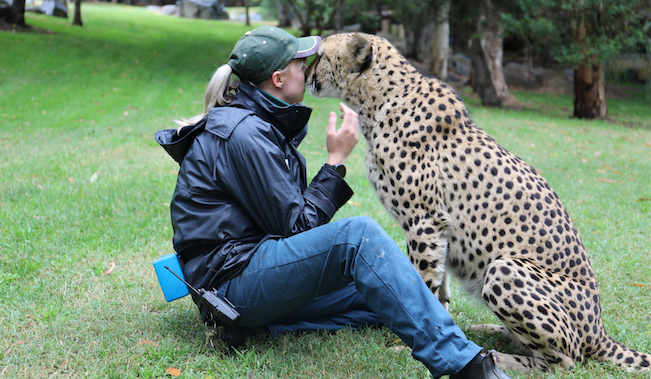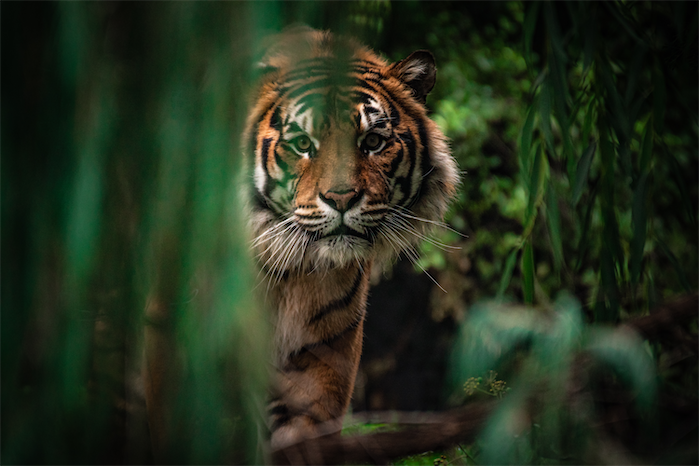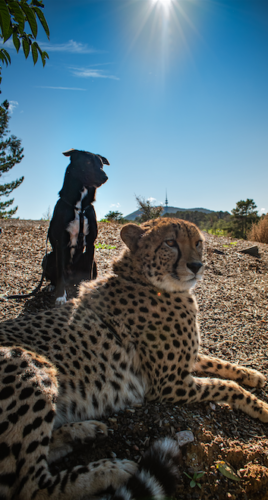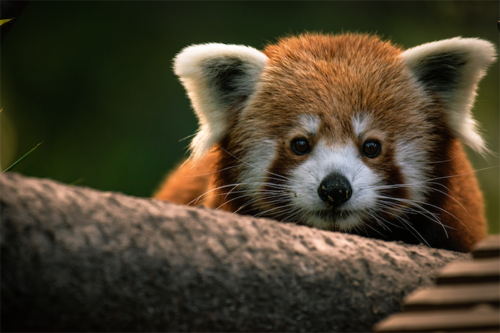
THE tigers are getting restless, the cheetahs are lonely and the meerkats are bored.
Since the National Zoo and Aquarium was forced to close on March 25 because of COVID-19 restrictions, business manager Russell Jackson says some of the more sociable animals are missing out on seeing people pass by every day.
“Our keepers are diligently working on enrichment and giving extra attention to the animals, as well as maintaining their regular routine, while visitors stay at home,” he says.
“They’re absolutely passionate about their animals, and many volunteer to spend time with them every minute they can, on top of their daily rounds and on their days off.”
Wildlife and grounds manager Bec Scott looks after a range of animals including the bears, tigers, red panda, meerkats and cheetahs.

She says the tigers have started getting destructive of their enclosure, particularly the cubs.
“They’re very playful and people-oriented. They love to stalk, and they’re not getting that distraction from anyone walking past, so they seem to have turned that attention towards destroying the brush fencing,” she says.
“We keep them occupied, bringing in bones and boxes for them to chew, and scents like perfume, essential oils or herbs. It gets a variety of reactions. Essentially we create interest in their environment so they don’t get bored.”
Bec says enrichment is always done anyway, but keepers have increased efforts and switched things up to keep animals occupied while the zoo is so quiet.

Solo, the zoo’s hand-raised cheetah cub, and his best friend dog Zama get regular walks up to Jamala Lodge. Ruffed lemurs have extra things to climb on, and other primates have toys to fiddle with. Eco the rhino has a ball to push around, and the dingos have a Kong with food hidden in it, or toys hidden in ice blocks.
As the zoo runs a regular meet-a-cheetah program, Bec says the cheetahs are particularly used to their routine and are missing human interaction.
“We keep their usual routine going as much as we can, so we go in the enclosure when visitors usually would,” she says.
“We don’t want them getting bored but they also need to be familiar with being up close to people.”
Russell says that although some staff are on reduced hours and it’s a bit of a skeleton crew, the animals need the same care as always so everyone has been pitching in.
“The meerkats are very visual creatures, and they get excited when we even just take our lunch and sit by the enclosure. They’re particularly inquisitive,” he says.
“They always rush up to see who it is and what’s going on.”
With no reopening date set yet, keepers have been doing Facebook Live talks to help people stay connected.
“We all miss seeing our visitors, it’s not just the animals,” Russell says.
“We’ve got some new residents that we haven’t introduced to the public yet, and maybe some new little ones, too – one of our koalas, Matilda has a joey in her pouch, so it will be exciting to see how much it will have grown. Our giraffe calf Nzuri has grown a lot, too.”

Bec says that many animals adapt and go about their daily routines, though the monkeys on Monkey Island have noticed the lack of visitors.
“They always get a lot of positive feedback from people coming in to the zoo, and love the chatter and the kids, so they’ve definitely noticed that no one’s here,” she says.
“I think we’ll really see a difference in their excitement levels when people start coming back.”
Who can be trusted?
In a world of spin and confusion, there’s never been a more important time to support independent journalism in Canberra.
If you trust our work online and want to enforce the power of independent voices, I invite you to make a small contribution.
Every dollar of support is invested back into our journalism to help keep citynews.com.au strong and free.
Thank you,
Ian Meikle, editor




Leave a Reply